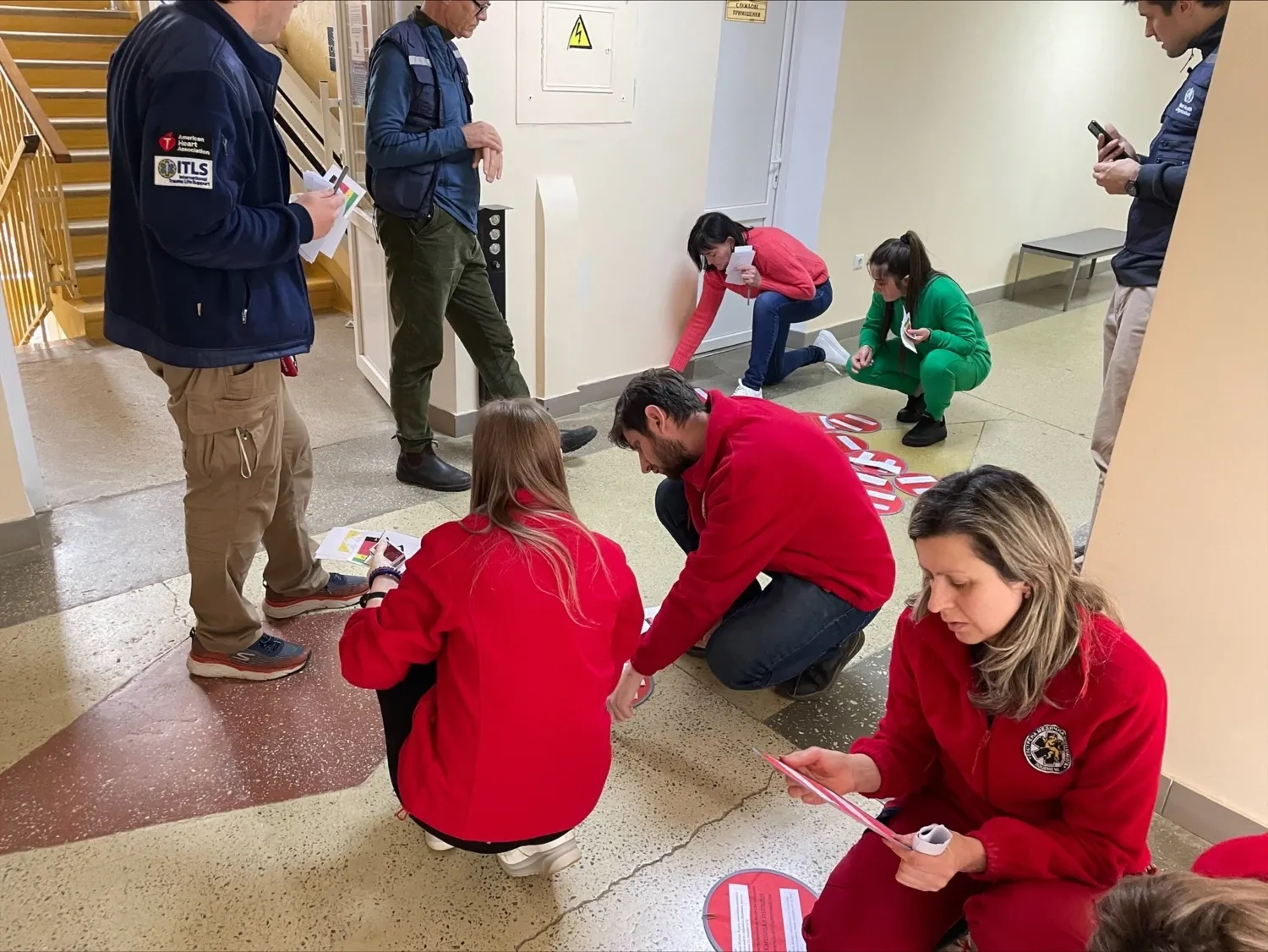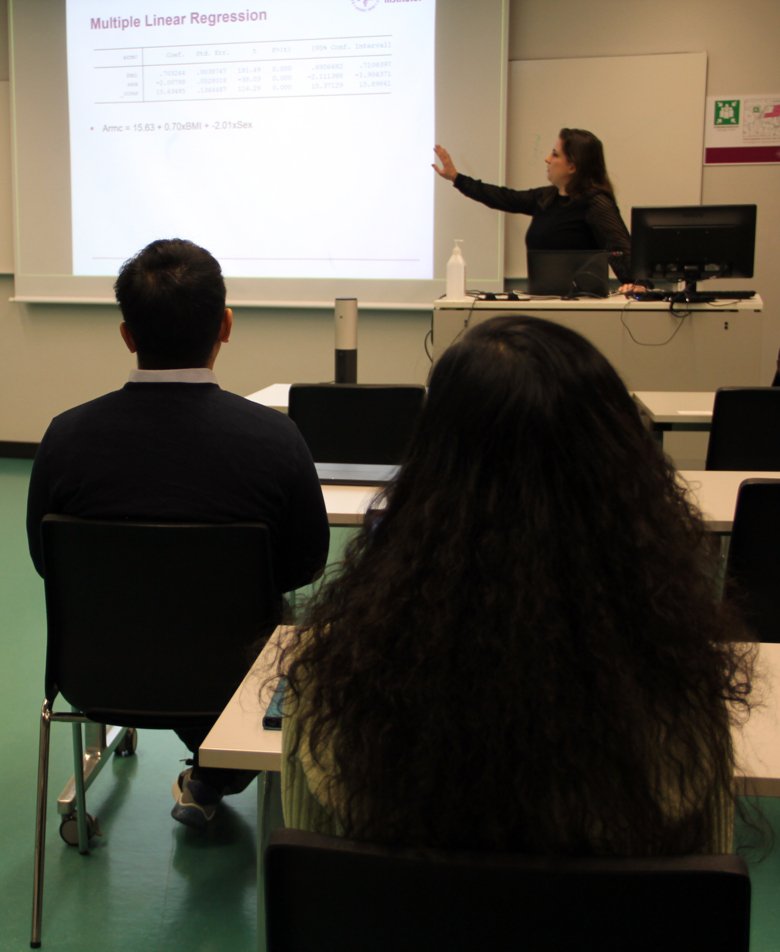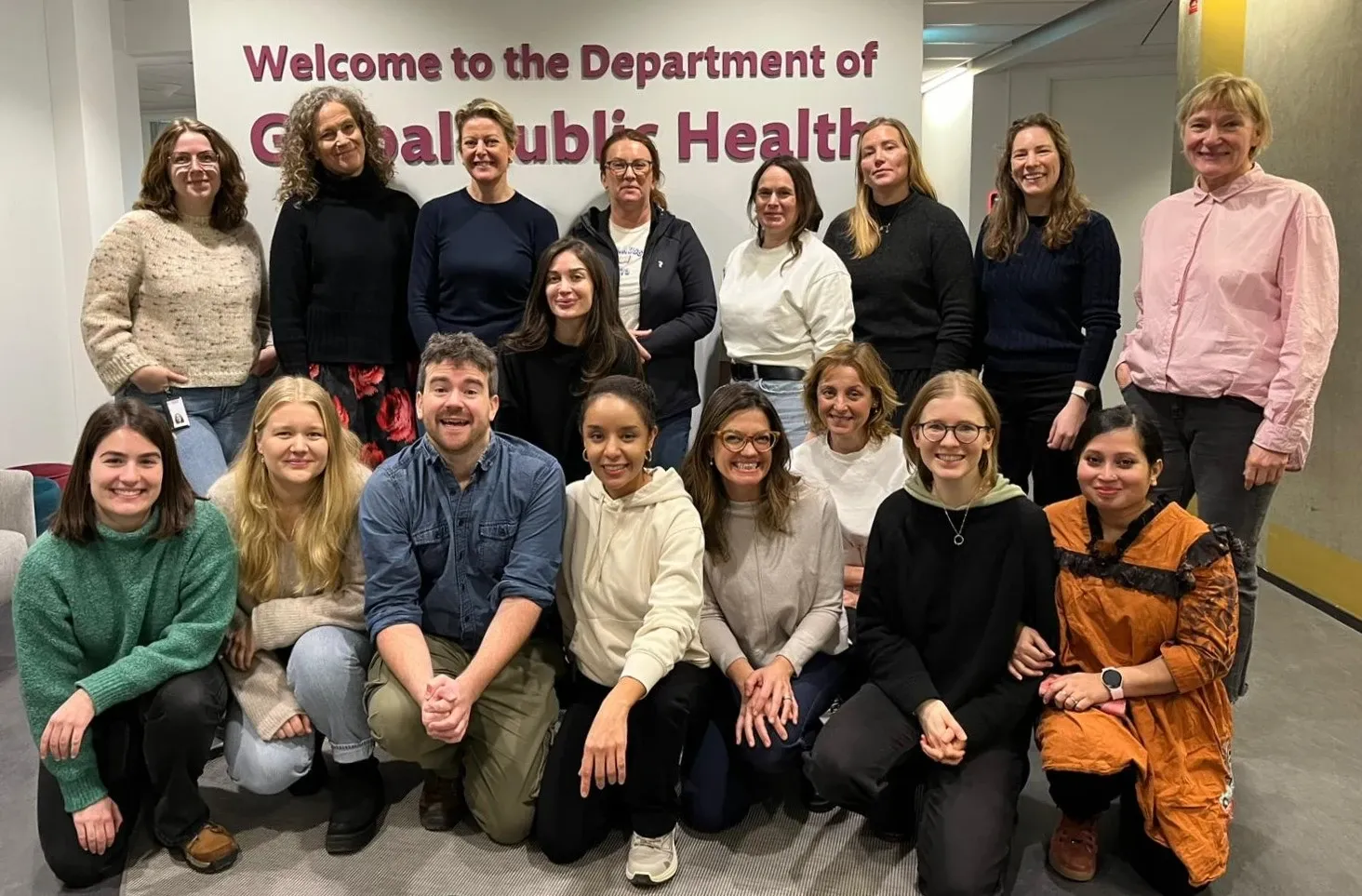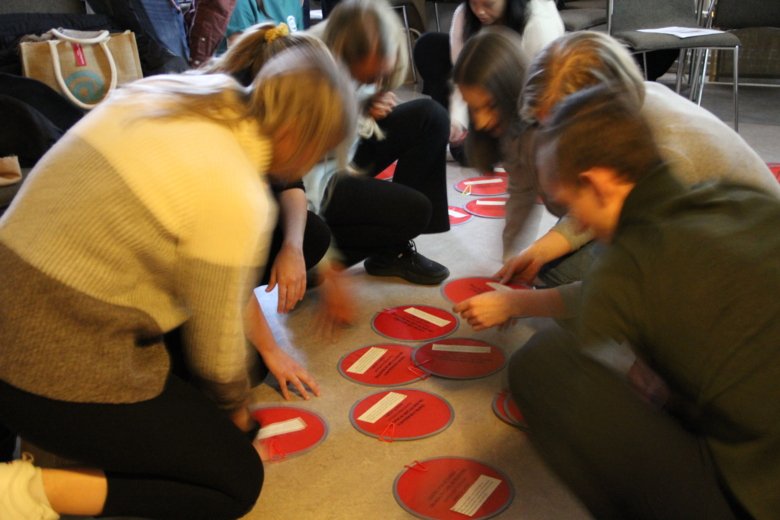Education and teaching at Global Disaster Medicine - Health Needs and Response
At Global Disaster Medicine - Health Needs and Response we have extensive experience in teaching and lecturing in disaster medicine, public health in disasters, global health in relation to disasters, prioritisation, triage and decision-making with limited resources. Our staff draw extensively on their research and their experience of field work in disasters in their teaching. We teach a range of courses, including professional training and an Erasmus Mundus Master programme.
AnTriEx and ViTriEX - simulation tools for teaching and training
 Photo: N/A
Photo: N/AAnTriEx and ViTriEx
AnTriEx and ViTriEx are tools for simulation exercises in mass casualty scenarios developed by us at Global Disaster Medicine - Health Needs and Response

Erasmus Mundus Master Programme - Public Health in Disasters
Our Erasmus Mundus Master programme in Public Health in Disasters provides students with an exclusive opportunity when it comes to education and training in the field of public health in disasters. It is the only Erasmus Mundus Master programme at Karolinska Institutet.
About the programme
We are one of three partners in a joint Erasmus Mundus Master degree programme, along with the Universidad de Oviedo in Spain and the University of Nicosia in Cyprus. It is a two-year long master programme, comprising 120 ECTs, that intends to build capacity that will reduce disaster risks and contribute to a better and more targeted public health-based relief following disasters. The programme is taught by top-level professional with personal experience of working in health care in disaster situations. The aim of the programme is to give the students plenty of both practical and theoretical training in health care in disasters and global medicine, in order to prepare them for a wide number of professional opportunities.
During the semester spent at KI, the students take three courses:
- Global Health and Disasters (7.5 ECTs)
The course provides students with an improved understanding of the concept of global health and the impact of disasters on our health, both as individuals and on societies. - Public Health Response in Health Crisis and Disasters (15 ECTs)
The course provides students with the tools to understand, assess, analyse, plan, and implement health interventions in crises and disasters. - Qualitative Research and Evaluation Methods in Disasters (7.5 ECTs)
The course provides students with an introduction to qualitative research and how it can be used in evaluations of health care interventions in disasters.
These courses are also available as free-standing courses (see below), which contributes to a mix of students and a diverse learning environment.
In addition to the three courses during the semester at KI, some students in the programme will also write their thesis here, which means they spend another semester at KI.
Erasmus Mundus Master programme website and course catalogue
Free-standing courses in global disaster medicine
In the spring semester of 2026, we offer three free-standing courses in global disaster medicine. The courses are taught in conjunction with our Erasmus Mundus Master's programme, which contributes to a global atmosphere in the classroom and excellent opportunities for exchange of experience with other students.
- Global Health and Disasters (7.5 ECTs)
The course provides students with an improved understanding of the concept of global health and the impact of disasters on our health, both as individuals and on societies. - Public Health Response in Health Crisis and Disasters (15 ECTs)
The course provides students with the tools to understand, assess, analyse, plan, and implement health interventions in crises and disasters. - Qualitative Research and Evaluation Methods in Disasters (7.5 ECTs)
The course provides students with an introduction to qualitative research and how it can be used in evaluations of health care interventions in disasters.

Health Assistance in Humanitarian Crisis - Professional training course in collaboration Médecins Sans Frontières (MSF) Sweden
We teach a professional education course (uppdragsutbildning) called Health Assistance in Humanitarian Crisis, aimed at health care and medical staff who are preparing to do a field mission abroad.
Please note that this is a professional training course. To be able to attend you should either be in the recruitment process for a position with Médecins Sans Frontières (Läkare utan Gränser) Sweden or your employer should support your participation.
About the course
The course awards 12 ECTs and is taught across four thematic modules. The course provides concrete tools for planning and implementing humanitarian health assistance. The basis of the course is the global health situation and determinants for health. It illustrates how context and different types of disasters affect public health. The course highlights health strategies aimed at reducing morbidity and mortality. The course is taught, in Swedish, through a combination of web-based learning and teaching on campus at Karolinska Institutet in Solna.
The four thematic modules are:
- Global health, disasters and health crises
- Disasters, health crises and communicable and non-communicable diseases, as well as epidemic outbreaks
- Sexual and reproductive health and rights (SRHR), as well as child health in disasters and health crises
- Project planning and response in disasters and health crises
Teaching methods
- Interactive lectures
- Discussion seminars
- Case-based group assignments
- Clinical simulation exercises
The Health Assistance in Humanitarian Crises course is next held 14 of September to 11 of December 2026 at KI Campus Solna. Applications are now open. Please visit the course website to apply and to find out more.
Course contacts
For more information about course content, please contact Anneli Eriksson, anneli.eriksson@ki.se.
If you are going to take the course via Médecins Sans Frontières, please contact Eugene Bushayija, Eugene.Bushayija@stockholm.msf.org.
If you are interested in applying to this course but are not a prospective staff member of Médecins Sans Frontières please contact Kristoffer Mörtsjö, kristoffer.mortsjo@ki.se for more information about the registration process and fee.

Disaster medicine for medical students at KI
We teach disaster medicine to medical students at KI, focusing on topics such as: the principles of clinical disaster medicine in Sweden and globally, decision-making with limited resources, and management of mass casualty incidents.
The course Decision-making With Limited Resources is a special one-day course in disaster medicine for all medical students currently in their final year at KI. It focuses on practicing triage, prioritisation, and how to make the best decisions when resources and information are scarce and unknown.
Courses for specialist medical staff
Since 2018 we have conducted specialist courses on behalf of the Swedish National Board of Health and Welfare (Socialstyrelsen), also known as SK-courses. The specialist courses are state-funded courses for medical doctors who are doing their specialised medical training in Sweden (specialiseringstjänstgöring). The courses are focused on decision-making with limited resources, triage, and disaster medicine.
